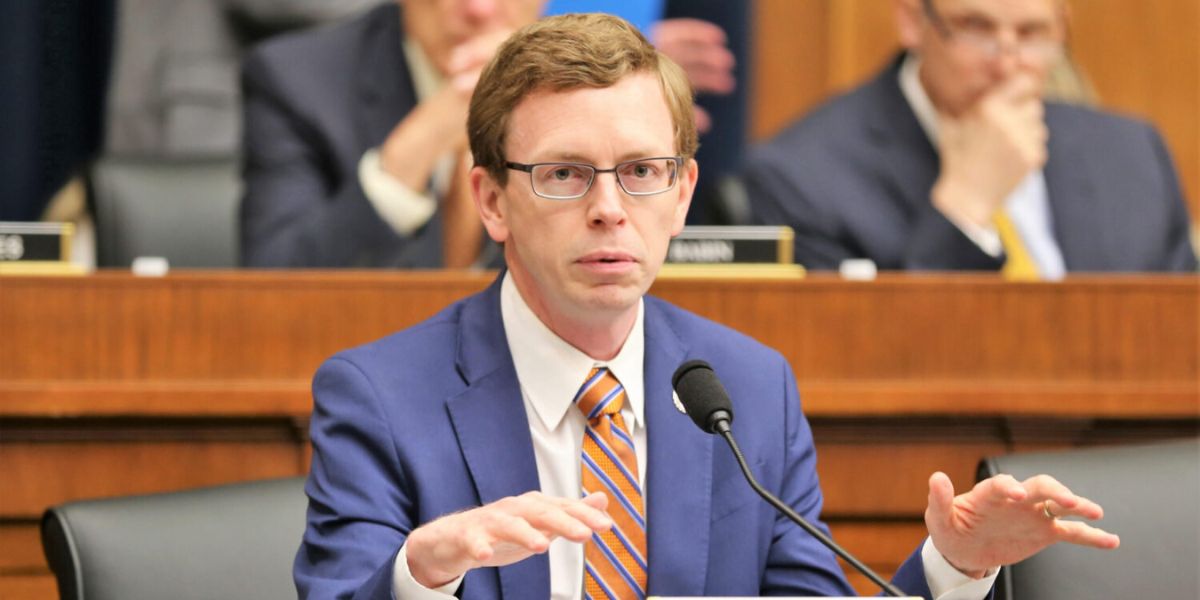House Passes Foreign Aid and Repo Act to Support Ukraine’s Reconstruction
The House passed a foreign aid package Saturday, as well as the REPO Act, which would allow the Biden administration to seize billions of dollars in Russian assets held in US institutions and send them to Ukraine for reconstruction.
“By delivering urgently needed aid to Ukraine, the United States has reasserted itself as the leader of the free world and a reliable partner to its allies,” Rep. Ritchie Torres, D-N.Y., wrote on social media. “The US has a singular obligation to help freedom fighters fight for their freedom, and nowhere more so than in Ukraine, whose self-defense against Putin’s aggression must prevail.”
The REPO Act, which would allow Biden to seize frozen Russian assets in US institutions and transfer them to a special fund for Ukraine, is part of a foreign aid package that has been blocked in the House for months. More than $6 billion of the $300 billion in frozen Russian assets are held in US institutions. The majority of the $300 billion in assets are in Germany, France, and Belgium.
On Wednesday, House Speaker Mike Johnson, R-La., unveiled the plan, which includes tens of billions of dollars in aid for Ukraine, Israel, and Taiwan.
“I’m going to allow an opportunity for every single member of the House to vote their conscience and will on this,” Johnson told reporters, explaining his decision to allow the vote to take place Saturday.
Russian President Vladimir Putin and his government have invested significantly in the euro and the dollar over the years to keep the ruble steady, accumulating $300 billion in foreign currency reserves.
However, in early 2022, following Putin’s invasion of Ukraine, the Group of Seven countries — the United States, the United Kingdom, Canada, France, Germany, Italy, and Japan — banded together and froze all $300 billion in Russian foreign currency reserves stored in their banks, the majority of which were in Europe.
“The Russians were surprised when, right after the war started, the Europeans took the same measures as the United States, freezing all of the reserves that were there, and the Japanese did the same, which is why most of Russia’s reserves today are frozen in Western banks,” said Chris Miller, a professor at Tufts University’s Fletcher School of Global Affairs.
The concept of seizing Russian assets, which appeared last year, has been fiercely opposed by economics and international policy specialists.
In a recent op-ed in The New York Times, contributing opinion writer Christopher Caldwell claimed that confiscating Russian cash is a “terrible idea” because other countries may cease investing in the United States, thus harming the economy in the long run. “This might diminish the dollar’s position as the primary global reserve currency. Caldwell suggested that the dollar is perhaps the United States’ most valued strategic asset.
Michael McFaul, the former US ambassador to Russia who has been campaigning for the REPO Act for months, rebutted Caldwell’s claim, saying that using Russian assets for Ukraine would send an essential message to despotic regimes around the world.
“Some argue that this will damage the dollar. It’s horrible for our reputation. That is not something I agree with. “I do not want criminals investing in American Treasury bonds,” McFaul stated.
One of the diplomatic obstacles would be persuading the remaining G7 countries to do the same. While the United Kingdom supports the concept, France and Germany have expressed reservations.
“We’re making good progress on how to access those funds on an agreed-upon basis, which I believe we can take forward to the G7,” U.K. Foreign Minister David Cameron told reporters on April 9. Throughout the diplomatic maneuverings, one group in the background has consistently applied pressure on members of Congress, the White House, and G7 countries to proceed with the concept of confiscating the funds.
The Renew Democracy Initiative, a Washington, D.C.-based nonprofit group that promotes democracy and American interests abroad, sent a letter on Friday urging Johnson and House Minority Leader Hakeem Jeffries, D-N.Y., to collaborate to pass the REPO Act.
“Your leadership through legislative action will increase the likelihood that the administration does what is necessary to confiscate Putin’s billions,” wrote Chairman Garry Kasparov and CEO Uriel Epshtein.
In an interview Friday, Epshtein stated that he believes it will require US action to bring about a G7 collaboration to collect the cash. “Other G7 countries will only act to confiscate Russian assets if the U.S. leads,” he said.










